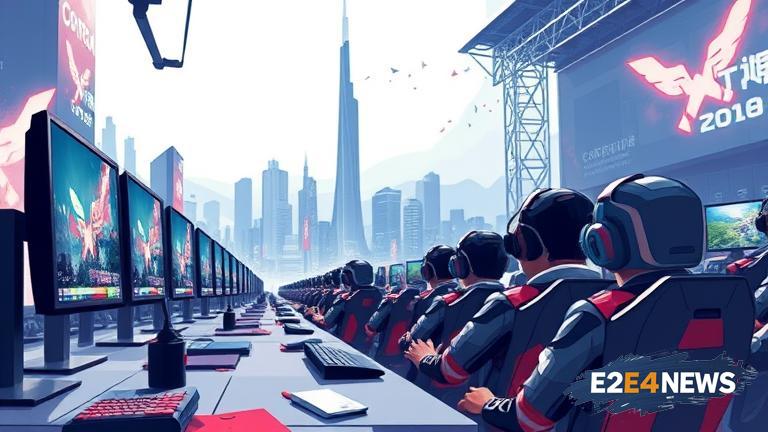South Korea’s esports industry has undergone significant development in recent years, transforming into a major player in the global gaming scene. The country’s strong IT infrastructure, high-speed internet, and tech-savvy population have created a fertile ground for esports to flourish. With the establishment of the Korean e-Sports Association in 2000, the industry has received government support and recognition, further fueling its growth. Today, South Korea is home to some of the most successful esports teams and players, with many competing in popular games such as League of Legends, Overwatch, and StarCraft. The country has also hosted numerous international esports tournaments, including the League of Legends World Championship and the Overwatch World Cup. These events have not only showcased South Korea’s esports prowess but also contributed to the country’s economy, with millions of dollars in revenue generated from ticket sales, sponsorships, and advertising. The esports industry has also created new job opportunities, with many young Koreans pursuing careers as professional gamers, coaches, and analysts. Furthermore, the industry has led to the development of new technologies, such as virtual reality and augmented reality, which are being used to enhance the gaming experience. The Korean government has also launched initiatives to promote esports, including the establishment of esports departments in universities and the creation of esports-related courses. Additionally, the government has provided funding for esports infrastructure, including the construction of dedicated esports arenas and training facilities. As a result, South Korea’s esports industry is expected to continue growing, with predictions suggesting that it will become a major contributor to the country’s economy in the coming years. The industry’s growth has also led to increased interest from investors, with many companies investing in esports teams and leagues. The popularity of esports in South Korea has also led to the creation of new media outlets, including dedicated esports channels and streaming platforms. These platforms have provided fans with access to live coverage of esports events, as well as analysis and commentary from experts. The esports industry has also had a positive impact on society, with many fans using esports as a way to socialize and connect with others. Moreover, the industry has provided a platform for social issues to be addressed, such as the importance of mental health and the need for diversity and inclusion. However, the industry also faces challenges, including the risk of match-fixing and the need for better regulation. To address these issues, the Korean government has established a task force to monitor and regulate the industry. In conclusion, South Korea’s esports industry has experienced remarkable growth and is expected to continue thriving in the coming years. With its strong infrastructure, talented players, and government support, the industry is well-positioned to become a major player in the global gaming scene. As the industry continues to evolve, it is likely that we will see new innovations and developments, further solidifying South Korea’s position as a leader in the esports world.
